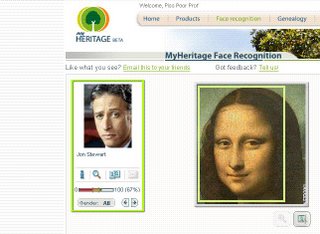The Business of Academics is revealed in simmering plagiarism controversies. Simply stated, higher administration of academics shares more with business than with education. I know, your college or university is probably different, run by an old scholar who values academic integrity, research and good 'ole rigorous integrity. If so, good for you. Yours is the exception, not the rule.
The rule, now, is that higher ed is run by and as a business. Gone are the days when old profs "moved" up through the ranks from Dean-dom to university President. It might still happen, but on the whole the president will more likely be a targeted businessperson who may or may not have academic experience: more MBA than PhD.
This is not something I note that should be blindly accepted…that this trend is right or beneficial to academia at large. That is another post.
What I am pointing out, though, is that stories like
this one in Inside Higher Ed point to a growing cultural divide more than a disintegration of academic standards. [note: this article focuses on the controversy at one university, extrapolating a larger problem…I don't know if that is quite the case] Let me explain.
Business looks at the written work far differently than academics. The latter sees an extension of his or her personhood: these are my thoughts, my work, my future, my integrity. Papers, articles, books, et. al. combine to form a body of work that moves one along to career success. Academics live and die by their individual work.
Businesses live and die from producing product or services, and the better run smoothly by using as much of the already-produced work to further future work. That is, they "leverage" existing materials (written work is often called "content") in order to make present or future materials. For example, I have been an ERP trainer for much of my working career. I was, initially, appalled at the methods of producing training materials. As a starting consulting working for a Fortune 50 company, I was instructed to copy/paste the work of the software engineers, "cleaning up the language" only when needed. That is, I was not expected to produce original work as much as build on the work of others. Instead of the individual academic model, I was to adopt a corporate collective one. If I was doing my job well (with both time and effort), my materials would have little of "me" in them (voice, position, etc.) and have as much of the work of others as possible. Plus, you don't footnote or cite in business. As long as you are not stealing from your competition (and then it is only bad when you are caught), there is no expectation of originality.
So, as higher admin are culled from and are embodying corporate culture, they will be "caught" "stealing" content.
One set of examples from the article comes from Southern Illinois U. where, among other accusations, was that:
University President Glenn Poshard, who oversees both campuses, copied almost verbatim the text of his
predecessor’s online welcome page in
his entry.
The local academics were outraged and shocked! How dare the admin not produce original work…we, the professorate, all do. Nay, we are forced to produce original work to get a job, tenure, etc. A linguistics professor of unknown tenure-status, Joan Freidenberg, is complains, "When you are the chancellor or president of the university, you can’t plagiarize. Our business is words and ideas; we are judged by them" (
as quoted in).
Academics want the same standard of job performance they work under to be applicable to the ones above them. But that, given the current state, is unrealistic. There are two cultures at work here, and the academics would do well to realize this.
I leave you with a quote that illustrates this point:
"In many of the other form letters that the university uses, it is common for the names and titles to change, but for the content of the message to remain the same. Since university staff create these letters, we do not believe that this practice is improper,” [Michael] Ruiz [(a Southern Ill U. spokesman)] said in a statement.
To add a nice wrinkle to the mix…
EdBloggerNews links to a
CNN story about a new
web site where academics-teachers can sell their materials. If I buy a lecture, is it now mine?
tag: academic,
adjuncts,
community colleges,
professors,
tenure,
universities,
plagiarism,
content,
business,
stealing,
integrity,
honesty
 Listen
Listen















